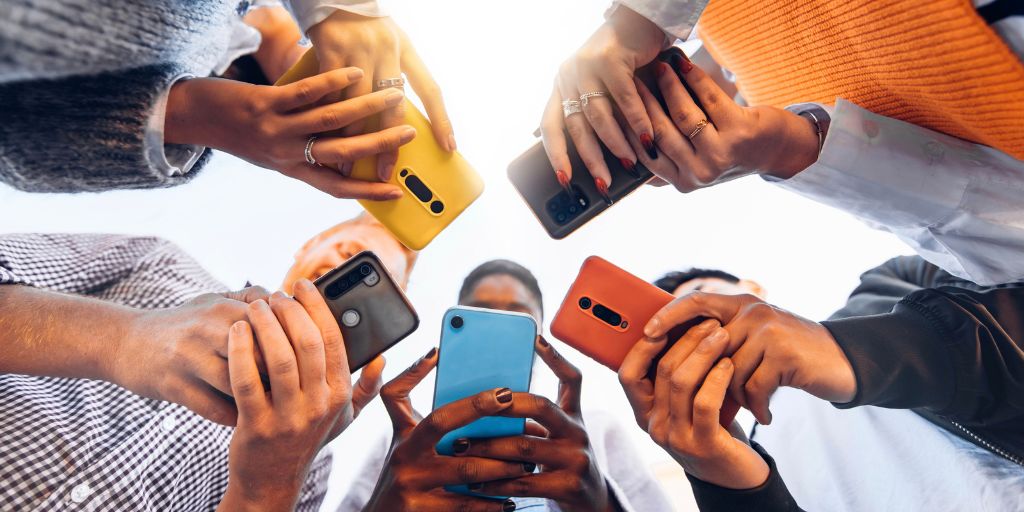
A majority of teenagers who sit face-to-face with a therapist in an alien environment to answer questions about their inner feelings do not find the experience particularly enticing. Thankfully, online therapy has changed all this.
Online therapy is a kind of treatment offered over the internet,a mobile phone or an app using communication devices such as audio, video or texting for specific groups which include teens and kids.
Online counseling is making mental health treatment more and more accessible for teens. Only last Wednesday,Talkspace,a New York City based mental health company announced its offer of free telemental health services to NYC teens between the ages of 13 to 17 through their app, “TeenSpace.”
Through this new program teens will be able to connect with an accredited Talkspace therapist via smartphone or computer by visiting talkspace.com/NYC and verify their address and birthdate.
There will be two tracks to choose from,one which will focus on self-guided exercises and mental health education and the other that will offer one-on-one interaction with a Talkspace therapist.
Parent’s or guardians consent will be a requisite for those teens who choose therapy. The users would be asked questions about the challenges they are facing and the company will then pair them with a therapist.
Apart from unlimited messaging to their therapists at any time,they can have a thirty minute virtual therapy session,once in thirty days.
This increased access to mental health treatment, through this new city program will help teens navigate through unique life occurrences like cyberbullying, social media and physical, social and emotional changes.
The partnership between New York City and Talkspace is for $26 million for a period of three years. Both NYC and Talkspace have launched a campaign on social media and also in partnership with influencers and schools through posters,videos and messages in all areas.
Dr Nikole Benders-Hadi,CMO of Talkspace,said that the program was intended to bend the curve of the high percentage of school students reporting feelings of hopelessness, sadness and those seriously considering suicide.
Online therapy for teens:is it effective?
Most parents wonder if online therapy for teenagers is a sound idea,therefore before starting treatment it is vital to educate oneself and understand any possible risks to ensure your child is the right candidate for online therapy.
Since the adolescent years are an important time to prioritize mental health,virtual therapy can provide a convenient and easy way to begin a consultation with a therapist,about everything from school uniform to other serious mental health issues.
The ubiquity of tablets and smartphones has taken the field of online therapy to a new level and our teenagers and young adults are true members of this digital transformation.
No doubt,there is a screen between the teen and the counselor,but that hardly makes any difference. A study published in the Journal of Anxiety Disorders revealed that online cognitive behavioral therapy for those 18 and above suffering from anxiety and depression showed high rates of effectiveness in the participants.
To conclude, evidence-based mental health apps can be extremely beneficial for young people to care for their mental health and develop strategies for coping with difficult emotions and get proper advice and information whenever needed.
Even if the teen is NOT suffering from any mental health condition, learning coping strategies for issues like relationship strife and stress will help them better handle intricate situations that may arise later on during high school, college and beyond.
How much does teen therapy actually cost?
Access to an affordable online health care treatment plan is a valid concern,especially when terms like premium,co-pay, and out of pocket expense come into play.
Online therapy is a convenient, affordable and readily available mode of mental health treatment,ideal for teens who may find it challenging to face in-person counsel due to financial restraints.
The cost of online therapy for teens can depend on a number of factors like,the state they live in,the exact treatment being taken and the benefits provided by their insurance company.
While the cost cannot be pinned down to an exact figure,teens in the US,when not seeking or getting free online counseling can expect to pay as much as $60-$109 per week depending on the online therapy app choosen.
A comparison of the top three reputable and effective online therapy contenders for teens is given below,that may meet all ranges of needs and budgets. For more options, see bestonlinetherapy.com’s list of top teen therapy platforms.
Talkspace Plus: (per week)
Talkspace users can use the video,text, messaging or audio format for availing services.Costs range from$69+$109 per week for ages 13-17.
Teens have a wide range of options for communicating with their therapist and the best part is Talkspace will match your teen with a therapist working with adolescents.
LiveHealth Online
This particular platform is designed for text or video conferencing and costs between $80-$95 per week and is formatted for teens for ages 10-17.
LiveHealth Online is a welcome platform as it accepts kids as young as ten and accepts most common insurance plans.
TeenCounseling
TeenCounseling users can speak with a therapist through video conferencing,live chat,text messaging or phone calls for teens of ages 13-19. Costs range between $60-$90 per week, depending on the therapist you choose and the state you live in.
TeenCounseling is an arm of Betterhelp, one of the largest online therapy platforms in the world and every licensed therapist on its platform specializes in treating teens. And have a minimum of three years of experience.
Free online counseling for teenagers elsewhere- a comparison
Similar to the free online therapy service recently introduced in New York City for teens,,there are some more options for free online counseling for teenagers in other countries..
One reliable online therapy source that is free not only for teens but for everyone, regardless of financial status, is offered by the National Health Service(NHS) in the United Kingdom. While this is a good option it is not necessarily a quick one.
Therapy services by the NHS are usually referred to as psychological services or talking therapy.The main difference from the US system is that the patient first needs to be referred by a GP to obtain mental health care under the NHS system, though there are exceptions.
Those suffering from mental health issues arising from substance or drug abuse are not required to submit a referral from the GP to avail of treatment.
The NHS was formed in 1948 to deliver quality free healthcare to all, including mental health care,besides access to general practitioners,hospital surgery and any other form of medical care.
There is flexibility in the choice of practitioners and teens have the right to initially choose their first mental health caregiver. A second opinion is not legally mandated.
There is however, a standard of around $11 for medicine prescriptions, though there are exemptions for those under 16 and those over 60. There is a minimum lawful waiting list of 18 weeks for consultancy medical services.
Although free mental health care has been established in the UK,there is a debate on how it should be funded, something similar to what happens in America. Increased access to health care is therefore the need of the hour which both countries should strive to improve.












